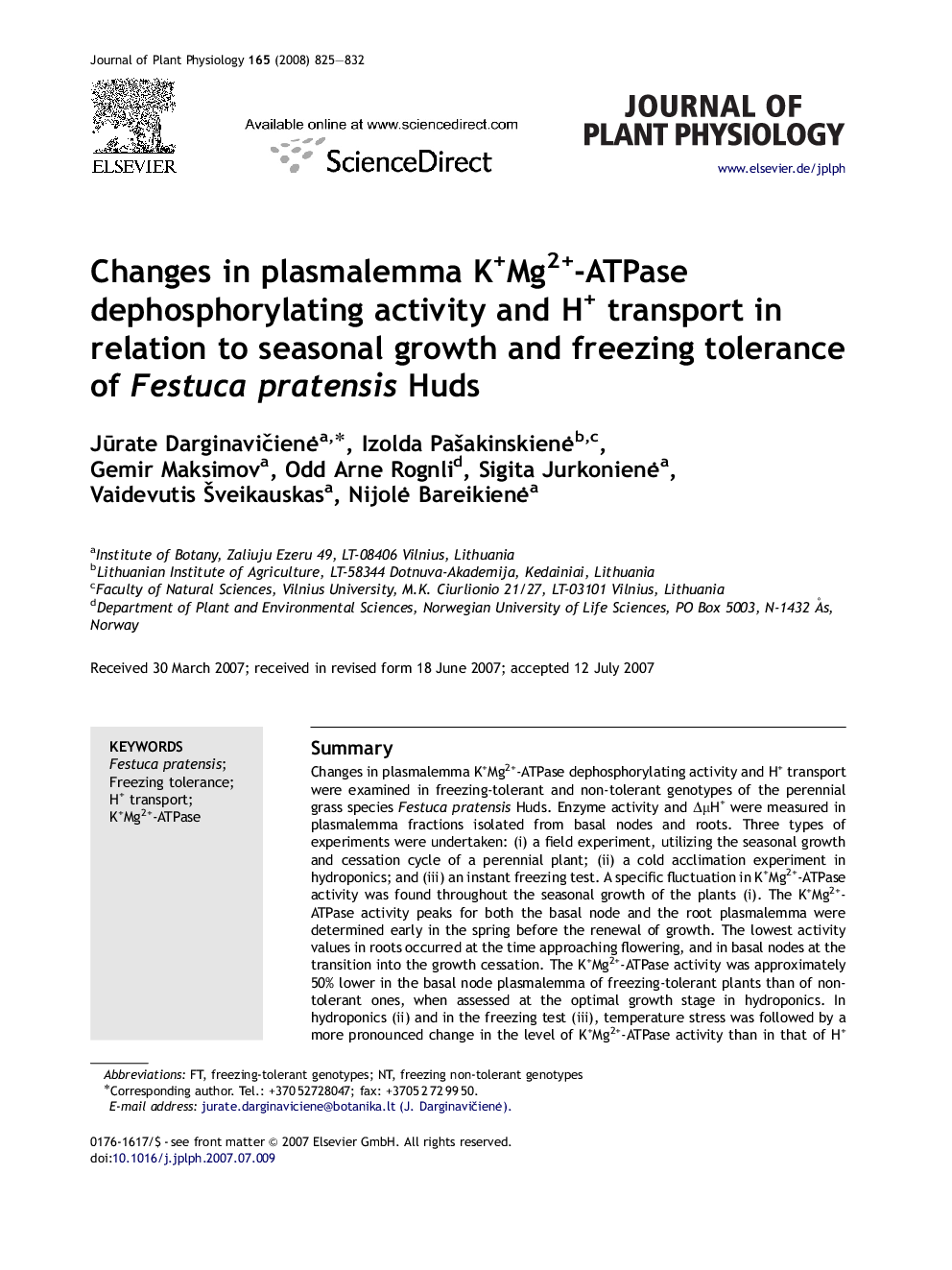| Article ID | Journal | Published Year | Pages | File Type |
|---|---|---|---|---|
| 2057256 | Journal of Plant Physiology | 2008 | 8 Pages |
SummaryChanges in plasmalemma K+Mg2+-ATPase dephosphorylating activity and H+ transport were examined in freezing-tolerant and non-tolerant genotypes of the perennial grass species Festuca pratensis Huds. Enzyme activity and ΔμH+ were measured in plasmalemma fractions isolated from basal nodes and roots. Three types of experiments were undertaken: (i) a field experiment, utilizing the seasonal growth and cessation cycle of a perennial plant; (ii) a cold acclimation experiment in hydroponics; and (iii) an instant freezing test. A specific fluctuation in K+Mg2+-ATPase activity was found throughout the seasonal growth of the plants (i). The K+Mg2+-ATPase activity peaks for both the basal node and the root plasmalemma were determined early in the spring before the renewal of growth. The lowest activity values in roots occurred at the time approaching flowering, and in basal nodes at the transition into the growth cessation. The K+Mg2+-ATPase activity was approximately 50% lower in the basal node plasmalemma of freezing-tolerant plants than of non-tolerant ones, when assessed at the optimal growth stage in hydroponics. In hydroponics (ii) and in the freezing test (iii), temperature stress was followed by a more pronounced change in the level of K+Mg2+-ATPase activity than in that of H+ transport, and this change was more clearly differentiated in the basal node plasmalemma of contrasting genotypes than in the roots. Stress response was manifested differently in freezing-tolerant and non-tolerant plants at cold acclimation (4–2 °C) and at freezing (−8 °C) temperatures. Proton transport regulation via coupled changes in the hydrolysed ATP/transported proton ratio, as an attribute of freezing-tolerant plants, is discussed.
